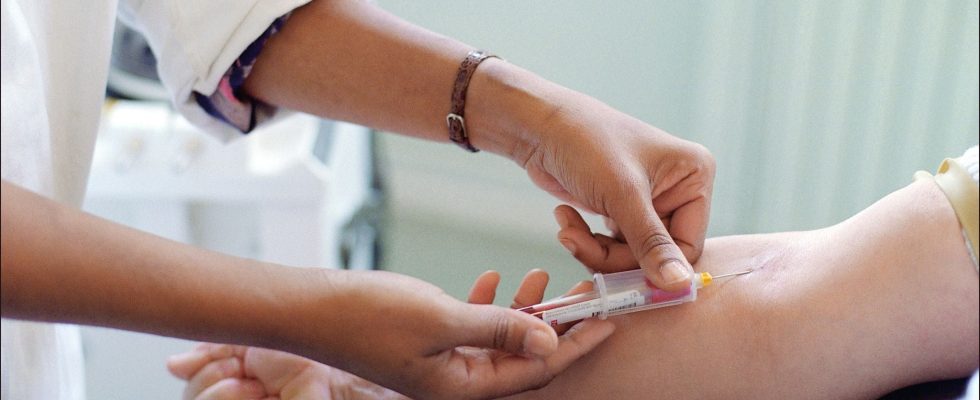Can we know if we are going to get cancer several years before we are diagnosed? This is the whole objective of the Early Cancer Institute, associated with the University of Cambridge, whose scientists have begun to identify changes in cells, many years before they transform into tumors.
“The latency for the development of cancer can last for years, sometimes for a decade or two, before the disease suddenly manifests itself in patients,” confirms the director of the Institute, Rebecca Fitzgerald, at The Guardian.
For the moment, many cancers are detected late and doctors “have difficulty treating this tumor” which has “propagated in the patient’s body”, regrets the scientist. “We need a different approach that can detect someone at risk of cancer early on using tests that can be administered to large numbers of people.”
Early signs in the blood
In this sense, with her team, Rebecca Fitzgerald developed the “cytosponge” technique – a capsule containing a tiny sponge suspended at the end of a string – allowing early diagnosis of esophageal cancer. Once this capsule is swallowed, the sponge collects the cells from the esophagus before being removed using the string. Cells that contain the TFF3 protein – found only in precancerous cells – thus provide an early warning that a patient is at risk for esophageal cancer and should be monitored.
Scientists from the Early Cancer Institute also looked at blood samples provided by women who initially came for ovarian cancer screening. “A gold mine,” according to Jamie Blundell, head of the research group, also interviewed by The Guardian. Indeed, by analyzing this blood, researchers identified abnormalities in certain samples from people who were diagnosed with blood cancer decades later.
“We find that there are clear genetic changes in a person’s blood more than a decade before they start showing symptoms of leukemia,” says Jamie Blundell, who wants to develop these techniques to ” reduce the chances of developing cancer. Thus, these scientists will mainly target people at risk, and in particular those who have a hereditary predisposition to tumors.
At the same time, a study published in March New England Journal of Medicine revealed that a basic blood test could help detect colorectal cancer in its early stages. “In total, 83.1% of participants with colorectal cancer detected by colonoscopy had a positive test,” attest the authors of the study. In detail, this test detects circulating tumor DNA, that is to say the DNA fragments that tumors release into the blood.
